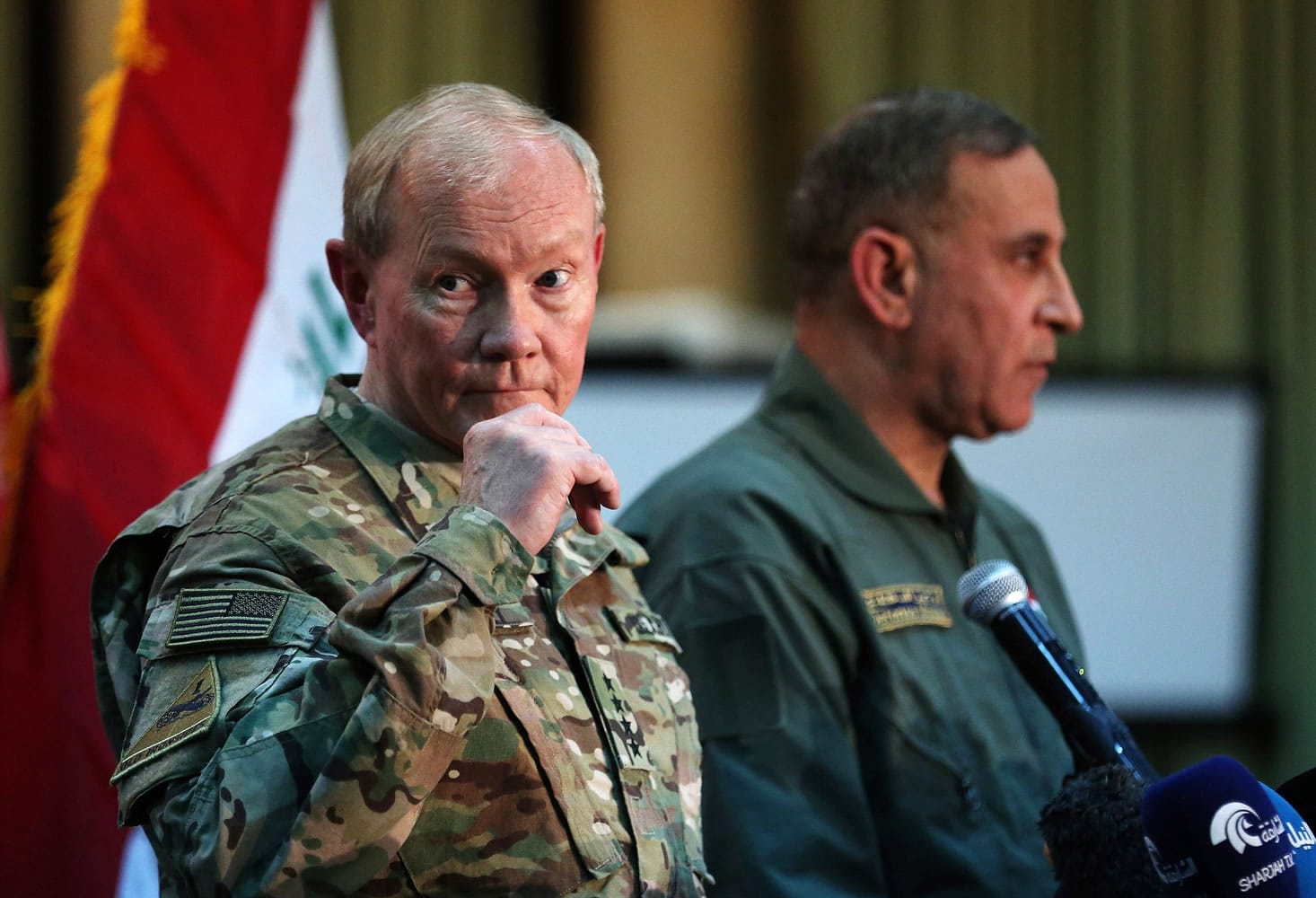BAGHDAD — The top U.S. military official said Monday he is “a bit concerned” about whether the international coalition fighting the Islamic State is sustainable for the longer-term challenge of confronting extremists in other regions.
Army Gen. Martin Dempsey, chairman of the U.S. Joint Chiefs of Staff, told reporters traveling with him that the basis of his concern is the possibility of continued sectarian divisions in Iraq.
Dempsey said that in military terms, the campaign against Islamic State is “on path.” But he put equal emphasis on the importance of sustaining the coalition for the longer term. Shiite dominance in Baghdad upsets predominantly Sunni countries such as Saudi Arabia and the United Arab Emirates.
“It won’t be enough to defeat (the Islamic State) just inside Iraq,” Dempsey said after a series of meetings with top government officials, including Prime Minister Haider al-Abadi, who assumed power last September, and Defense Minister Khalid al-Obeidi. Sunni Arab nations, in particular, need to be retained as partners against Islamic State, Dempsey said.
“And on that basis I came away with some concerns because the coalition has some concerns about” weak Iraqi governance. “I came away a bit concerned that it’s going to be difficult to sustain the coalition for the rest of the challenge, which is trans-regional, unless the government of Iraq can form that national unity platform to which they committed.”
Highlighting those concerns at an earlier joint news conference al-Obeidi said his government is comfortable asking for and receiving help from Shiite-led Iran, a major U.S. adversary and an enemy of key U.S. allies in the Gulf, in its fight against Islamic State militants.
“We are in a state of war,” al-Obeidi said, which requires Iraq to seek foreign assistance.
Iraq has been relying on military assistance from both the U.S. and Iran in its struggle against Islamic State extremists who have captured control of about one-third of Iraq and Syria.
The U.S. worries that Iran is taking too big a role in Iraqi affairs, but al-Obeidi dismissed that notion.
Dempsey, however, has been skeptical. Dempsey said he is not yet sure how to assess the Iraqi government’s intentions on its relationship with Iran and other issues.
“What I’m trying to sort out, actually, is the degree to which their near-term embrace of the assistance they’re receiving from Iran is a reaction to the existential threat (posed by IS), or whether it is something longer-term,” he said.



